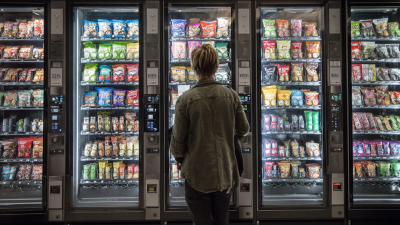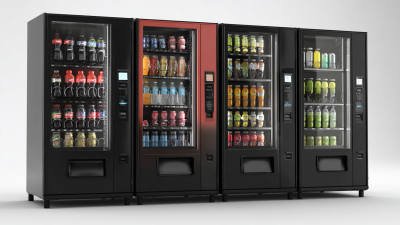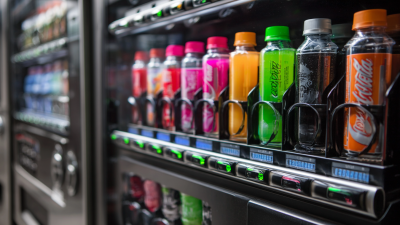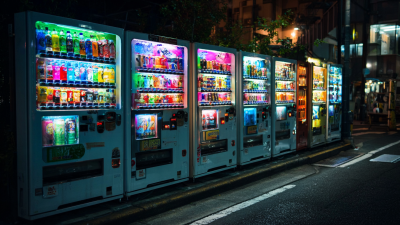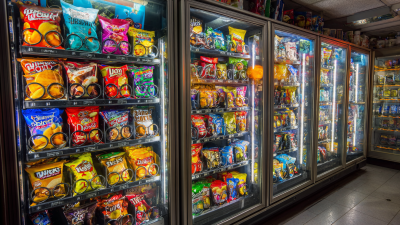Menu
Contact Us: 416.615.1555 | sale@booksvendingmachine.com
Menu
Contact Us: 416.615.1555 | sale@booksvendingmachine.com
In 2023, the beverage industry is witnessing a significant transformation, primarily driven by advancements in technology and shifting consumer preferences. Hot drink machines, which include state-of-the-art coffee makers and automated brewing systems, are revolutionizing how coffee is consumed both at home and in commercial settings. According to the National Coffee Association, approximately 62% of Americans consume coffee daily, reflecting a growing demand for convenience and quality in coffee preparation.
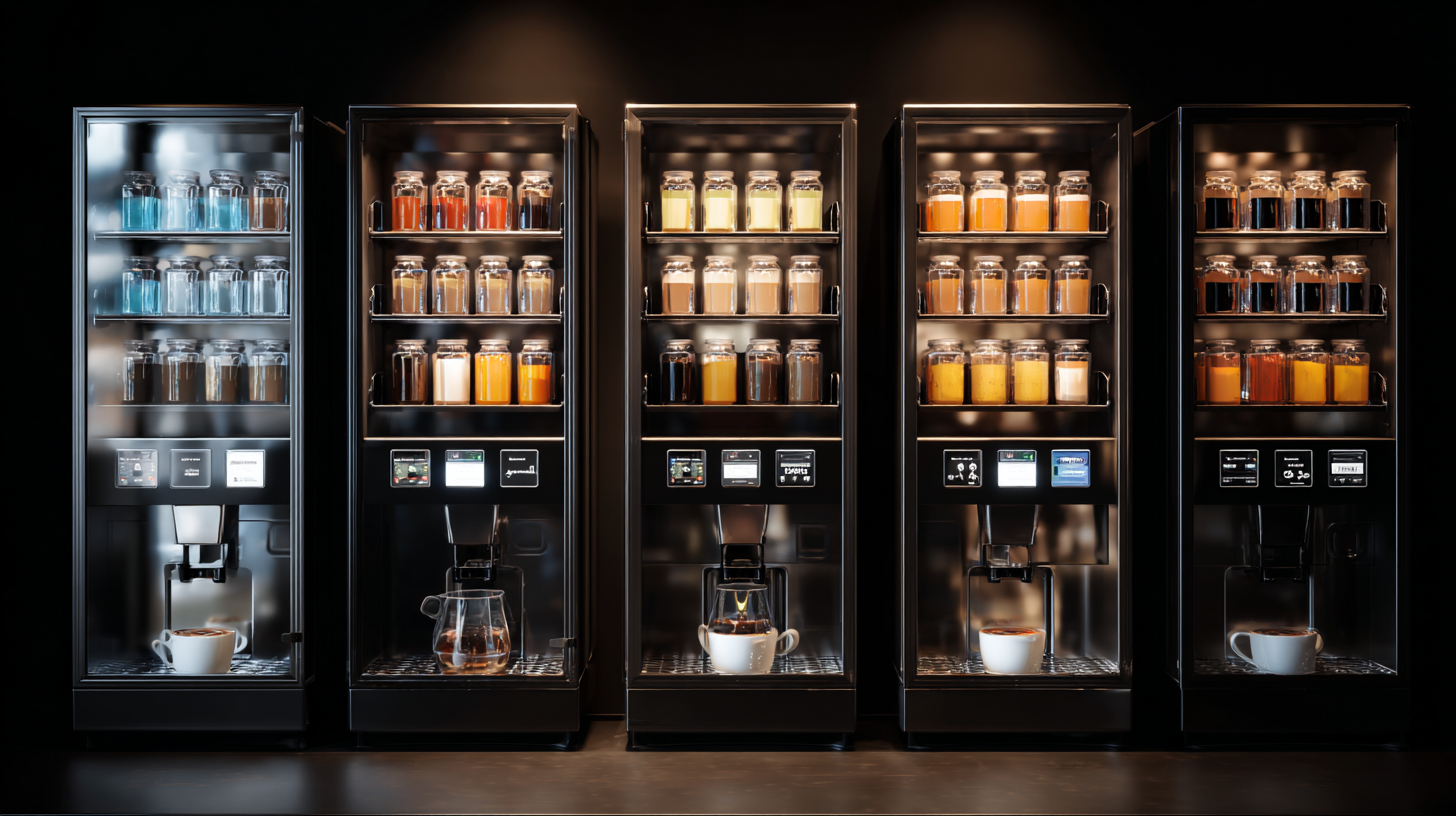
Furthermore, a recent report by Grand View Research predicts that the global hot drink machine market will reach USD 12.68 billion by 2025, expanding at a CAGR of 7.6%. This trend highlights not only the importance of innovation in capturing consumer interest but also the integral role hot drink machines play in elevating the coffee experience, making it more accessible and enjoyable than ever before. As businesses adapt to this evolving landscape, the seamless integration of these machines into everyday routines is set to permanently alter coffee consumption patterns.
The rise of hot drink machines has become a defining factor in modern coffee culture, significantly altering how consumers experience their favorite beverages. With the advancement of technology, these machines are now capable of brewing high-quality coffee at the touch of a button, making it easier for coffee lovers to enjoy artisanal drinks at home or in the office. The convenience paired with consistency has led to a surge in popularity, allowing more individuals to explore various coffee types without the necessity of barista skills.
Furthermore, the impact of hot drink machines extends beyond mere convenience; they promote a culture centered around personalization and experimentation. Many of these machines come equipped with customizable settings, enabling users to adjust brewing temperature, strength, and even milk frothing techniques. This capacity for personalization encourages coffee drinkers to try new recipes, fostering a sense of creativity and self-expression within their daily routines. The evolution of hot drink machines thus serves as a catalyst for a modern coffee culture that values accessibility, creativity, and the joy of crafting one’s perfect cup.
| Dimension | 2022 Data | 2023 Data | Growth (%) |
|---|---|---|---|
| Popularity of Hot Drink Machines | 35% | 55% | 57.14% |
| Average Daily Coffee Consumption | 2.5 cups | 3 cups | 20% |
| Home Coffee Machine Sales | 1.2 million units | 1.8 million units | 50% |
| Coffee Shop Visits per Month | 8.4 | 6.5 | -22.62% |
| Consumer Preference for Hot Drinks | 40% | 65% | 62.5% |
The coffee industry is experiencing a remarkable transformation in 2023, largely driven by advancements in technology that are reshaping brewing methods and consumer experiences. According to a report by the National Coffee Association, around 70% of Americans now consider themselves coffee drinkers, and with the integration of hot drink machines, the convenience and quality of coffee consumption are reaching new heights. Smart brewing devices, equipped with Wi-Fi and app connectivity, allow users to customize their brews, adjusting everything from temperature and brewing time to grind size, catering to increasingly discerning palates.
Moreover, a recent survey by Statista revealed that nearly 55% of millennials prefer making coffee at home using high-tech brewers, as they seek both value and quality. These machines not only enhance the flavor profile through precise control but also incorporate sustainable practices, using energy-efficient technologies and reducing waste with reusable filters.
As these innovations continue to gain traction, consumer habits are evolving towards a preference for personalized, high-quality coffee experiences at home, indicating a seismic shift in the beverage landscape.
In 2023, the landscape of beverage consumption is undergoing a significant transformation, largely driven by the emergence of advanced hot drink machines. These innovative devices cater to the evolving preferences of consumers who are increasingly gravitating towards convenience. The fast-paced lifestyle of modern consumers demands quick solutions, and hot drink machines offer a streamlined approach to coffee preparation, allowing for freshly brewed beverages in mere minutes. This convenience aspect has become a primary driver for many, particularly among younger demographics who value speed and efficiency in their daily routines.
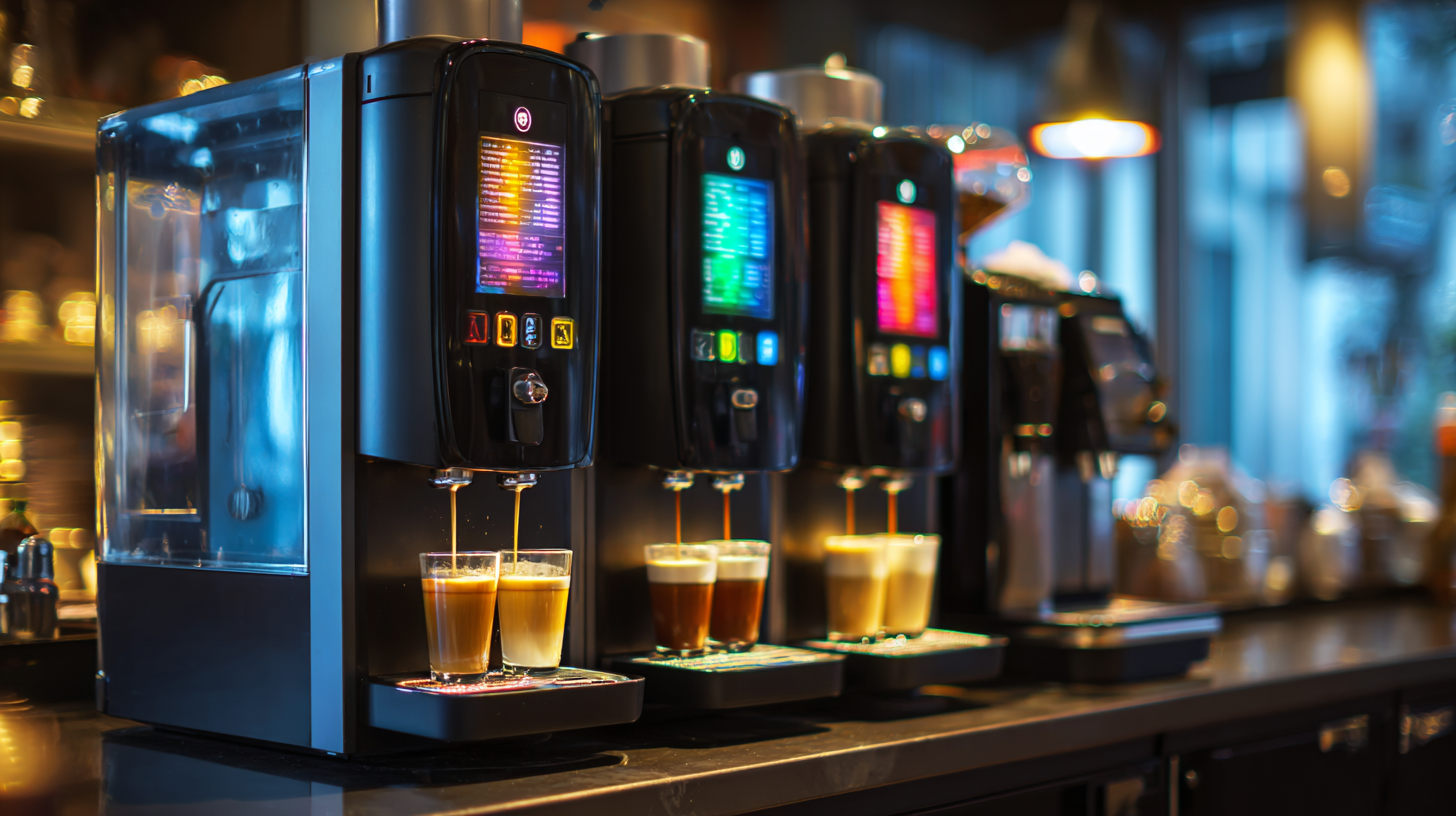
However, this shift towards convenience does not come without its challenges. Many coffee enthusiasts continue to advocate for quality over speed, emphasizing the importance of flavor and the experience of brewing coffee. The rise of specialty coffee and artisan blends highlights a consumer segment that prioritizes quality and craftsmanship over instant satisfaction. As a result, beverage brands are tasked with finding a delicate balance between technology-driven convenience and the rich, sensory experience that high-quality coffee brings. The ongoing battle between these two consumer preferences shows how the beverage industry must adapt to meet the diverse needs of its customers in this dynamic market.
In 2023, hot drink machines are not just changing the way we consume coffee, but also redefining sustainability within the beverage industry. With the growing demand for eco-friendly options, it has been reported that 43% of coffee consumers are influenced by ethical and environmentally responsible choices in their purchasing decisions. This trend is particularly strong among Gen Z, who are driving a revolution towards conscious consumption, emphasizing ethical sourcing and sustainability. As a result, beverage companies are increasingly adopting innovative practices to minimize their environmental footprint, ensuring that their offerings align with the values of today's consumers.
A notable shift is seen in the integration of sustainable practices into vending machine services, especially within educational institutions. These vending machines are being stocked with products that prioritize sustainability, responding to a demand for quick, convenient yet eco-friendly options. The ROI of going green is evident; businesses adopting sustainable methods are not only appealing to the conscious consumer but also experiencing significant market growth. For instance, projections show a remarkable increase in the paper straw market, which is expected to grow from USD 2.45 billion in 2025 to USD 7.53 billion by 2033, illustrating a clear consumer preference towards sustainable alternatives. As hot drink machines continue to evolve, they play a pivotal role in facilitating this shift towards more responsible coffee consumption.
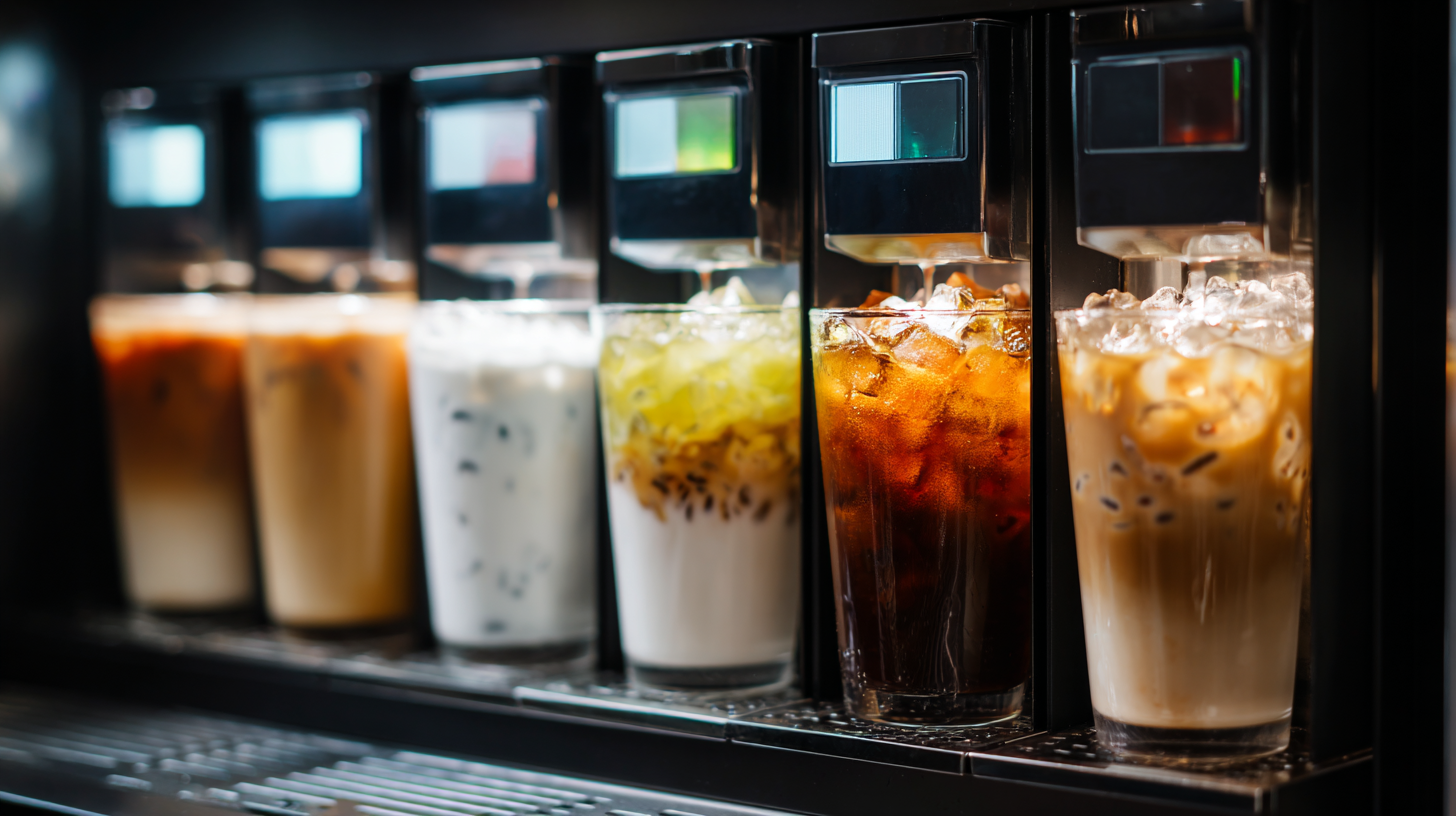
In 2023, the beverage industry is being profoundly influenced by shifting consumer preferences towards health-conscious options, particularly in the realm of coffee consumption. The rise of low-carb diets and bullet drinks has captured the attention of health-oriented consumers, with innovations in hot drink machines further enhancing the coffee experience. This technological advancement not only streamlines the brewing process but also caters to the increasing demand for customizable, nutritious beverages that align with modern lifestyles.
As the global cup market is projected to expand significantly by 2032, it is evident that the beverage landscape is evolving. The popularity of bullet coffee exemplifies this trend, emerging as a champion in the beverage sector, particularly within the Chinese market where health awareness is surging. With an eye on sustainability and wellness, 2023 marks a pivotal year for the beverage industry, embracing new trends that reflect a deeper commitment to consumer health and enjoyment.

